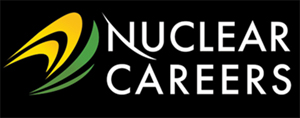The nuclear industry depends on a diverse range of construction professionals who turn complex designs into reality — ensuring that facilities are built safely, to exacting standards, and with world-leading precision.
Here’s a structured breakdown of the main construction roles found across the UK nuclear sector:
🏗️ Core Construction Management Roles
- Construction Manager – Leads all on-site construction activities, coordinating multidisciplinary teams to deliver safely and efficiently.
- Site Manager / Site Supervisor – Manages day-to-day site operations, overseeing contractors, quality, and progress.
- Package Construction Manager – Responsible for specific areas of work (e.g., civils, mechanical, electrical, or HVAC) ensuring integration across disciplines.
- Deputy / Assistant Construction Manager – Supports senior leadership in planning, logistics, and compliance.
🧱 Civil, Structural & Architectural Trades
- Civil Engineer – Designs and oversees construction of foundations, concrete structures, and containment facilities.
- Structural Engineer – Ensures structural integrity and compliance with seismic and load requirements.
- Architectural Engineer / Building Engineer – Integrates functional design with safety, access, and environmental standards.
- Groundworks & Formwork Specialist – Executes excavation, reinforcement, and concreting operations to nuclear-grade standards.
⚙️ Mechanical, Electrical & Piping (MEP) Construction
- Mechanical Construction Engineer – Oversees installation of turbines, pumps, pressure vessels, and mechanical systems.
- Electrical Construction Engineer – Manages electrical installations, cabling, and power distribution systems.
- Piping / HVAC Engineer – Coordinates complex pipework, ventilation, and thermal systems across containment and auxiliary buildings.
- Commissioning Engineer – Tests and validates systems before handover to operational teams.
📋 Planning, Controls & Logistics
- Construction Planner / Scheduler – Develops and monitors detailed construction schedules, ensuring alignment with project milestones.
- Logistics Coordinator – Manages the flow of materials, equipment, and personnel across secure and high-integrity sites.
- Project Controls Specialist – Tracks performance, progress, and productivity using earned value and digital tools.
- Materials Controller – Oversees material traceability and documentation in compliance with nuclear quality requirements.
⚖️ Quality, Safety & Compliance Roles
- Quality Inspector (Civils/MEP) – Conducts inspections and testing to verify construction quality against design and nuclear standards.
- HSE Advisor / Safety Manager – Promotes nuclear safety culture, conducts audits, and ensures regulatory compliance.
- Nuclear Construction Auditor – Reviews documentation and on-site practices for adherence to safety case requirements.
- Permit Coordinator / CDM Advisor – Manages work permits and ensures compliance with the UK’s Construction (Design and Management) Regulations.
👷 Skilled Trades & Technical Roles
- Steel Fixer / Concrete Finisher – Builds reinforcement and concrete structures to high-precision nuclear standards.
- Welding Technician / Pipefitter – Performs high-integrity welding and fabrication of critical systems.
- Electrical Technician / Instrument Fitter – Installs and calibrates electrical and control systems.
- Construction Operative / Labourer – Supports site preparation, logistics, and maintenance of controlled work areas.
🚀 Leadership & Strategic Roles
- Head of Construction / Construction Director – Provides leadership across large-scale programmes, ensuring alignment with strategic objectives.
- Nuclear Build Manager – Leads major construction phases of new nuclear power stations or infrastructure projects.
- Delivery Director – Oversees performance across contractors, stakeholders, and regulators.
- Digital Construction / BIM Lead – Integrates Building Information Modelling and digital tools to enhance coordination and efficiency.
🏗️ Nuclear Construction Career Framework
🎓 1. Entry Level (Early Career / Apprenticeships / Graduates)
Typical Roles:
- Construction Apprentice / Site Technician
- Junior Site Engineer (Civil, Mechanical, or Electrical)
- Assistant Construction Manager
- Document Controller / Project Administrator
- Health, Safety & Environment (HSE) Assistant
Focus Areas:
- Supporting site operations and on-the-ground coordination
- Learning nuclear safety, quality, and compliance standards
- Assisting in surveying, materials tracking, and daily reporting
- Developing practical understanding of site procedures and construction sequencing
Qualifications:
- Level 2–5 Apprenticeships, HNC/HND, or Bachelor’s in Civil, Construction, or Project Management
- CSCS Card, Nuclear Site Safety Passport, or equivalent site safety certifications
⚙️ 2. Mid-Career (5–10 years of experience)
Typical Roles:
- Site Engineer / Construction Engineer
- Construction Supervisor / Package Manager
- Planning Engineer / Project Controls Specialist
- Quality Inspector / Assurance Engineer
- HSE Advisor / Environmental Coordinator
Focus Areas:
- Managing teams and subcontractors on major nuclear infrastructure projects
- Implementing project plans, schedules, and cost tracking systems
- Overseeing quality assurance and safety compliance
- Collaborating with engineering and project delivery teams to ensure milestones are met
Qualifications:
- Chartered or Incorporated Engineer (CEng/IEng) status, or working toward it
- NEBOSH / IOSH certification, SMSTS/SSSTS qualification
- Advanced project or construction management training
🧠 3. Senior / Specialist Roles (10–20+ years of experience)
Typical Roles:
- Construction Manager / Site Lead
- Commissioning Manager / Field Operations Manager
- Interface Manager / Integration Lead
- Quality Manager / Nuclear Safety Lead
- Senior Planner / Project Controls Manager
Focus Areas:
- Leading complex nuclear construction phases from civils to commissioning
- Managing multi-discipline contractor interfaces and delivery schedules
- Driving safety culture, quality assurance, and regulatory engagement
- Mentoring teams and developing construction excellence frameworks
Qualifications:
- Senior professional accreditation (e.g., CEng, MCIOB, MAPM)
- Extensive experience in nuclear or high-hazard construction environments
- Recognized leadership in quality, safety, and stakeholder management
🚀 4. Executive / Strategic Leadership
Typical Roles:
- Head of Construction / Project Delivery Director
- Programme Director (New Build / Decommissioning)
- Construction Portfolio Manager
- Chief Operating Officer (Infrastructure / Nuclear Projects)
Focus Areas:
- Overseeing major nuclear programmes from concept to handover
- Leading strategy, governance, and digital transformation in construction
- Building capability pipelines and partnerships across supply chains
- Championing workforce development and innovation in nuclear delivery
